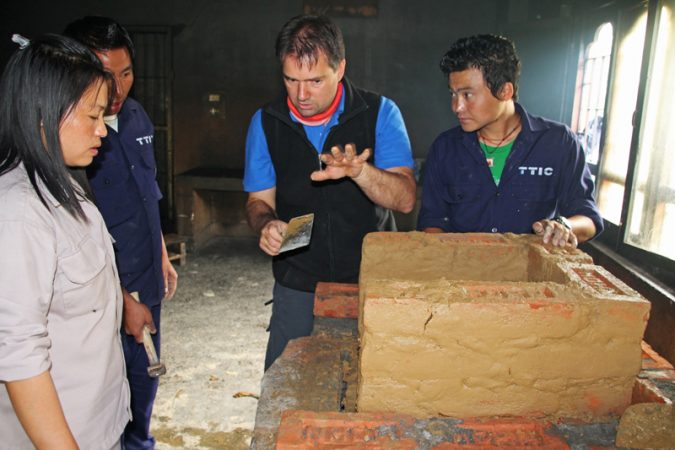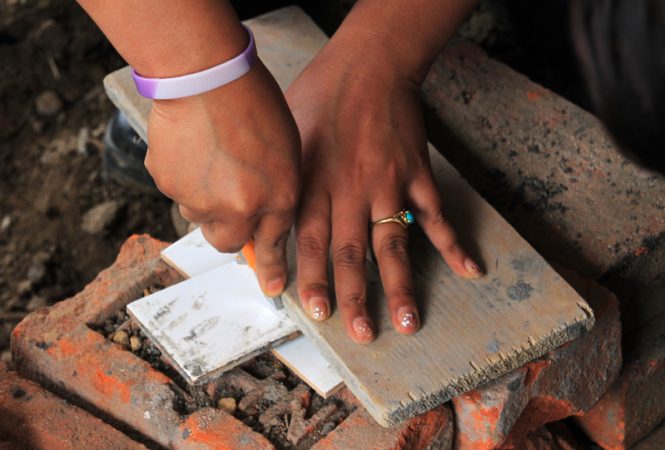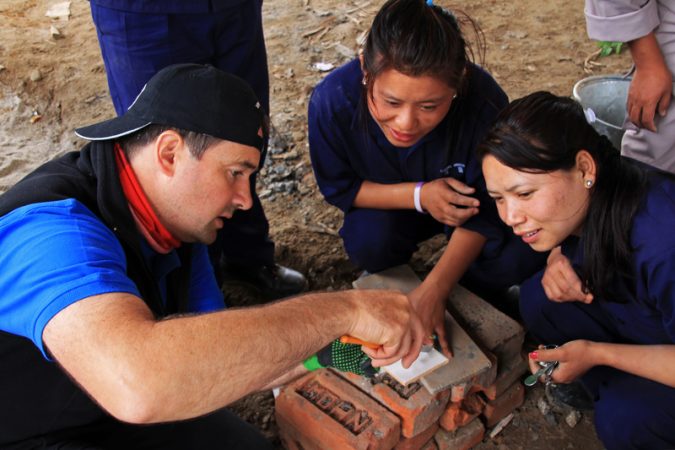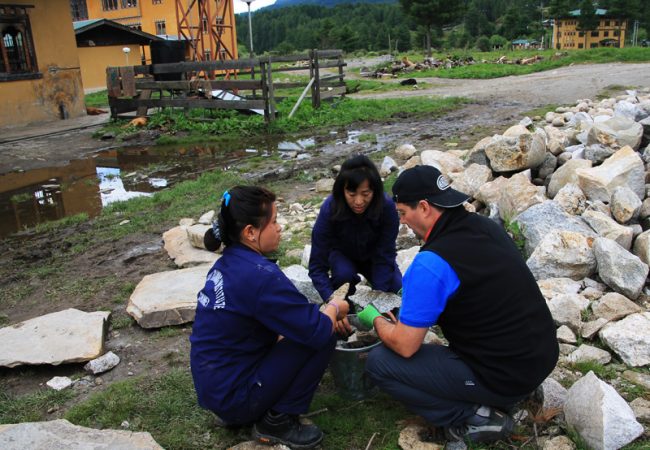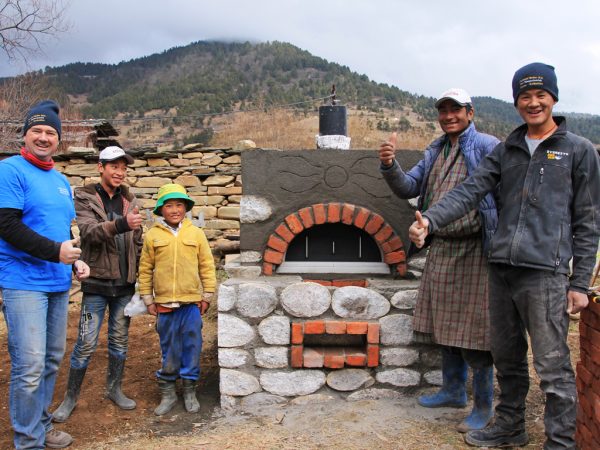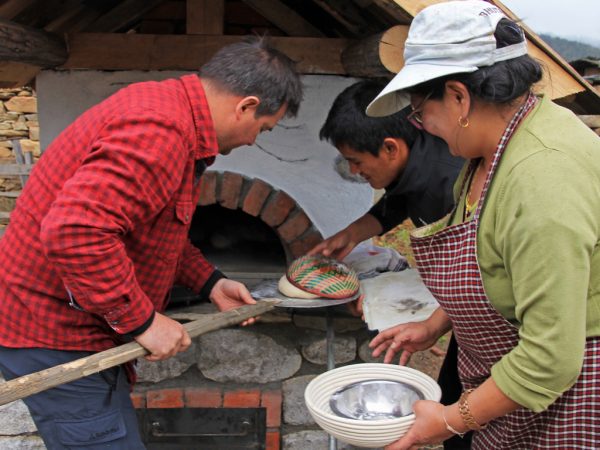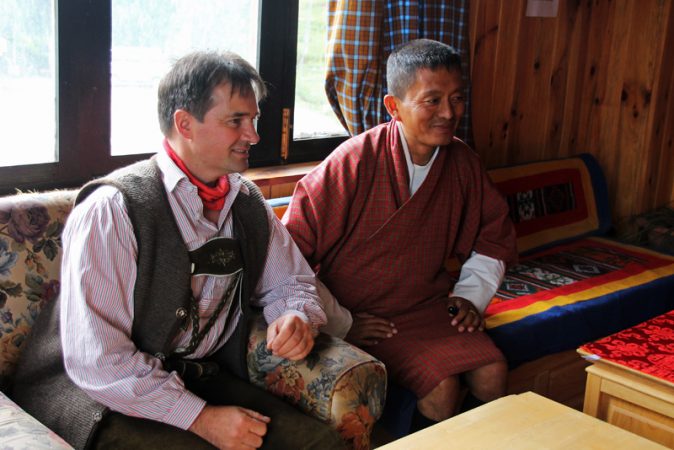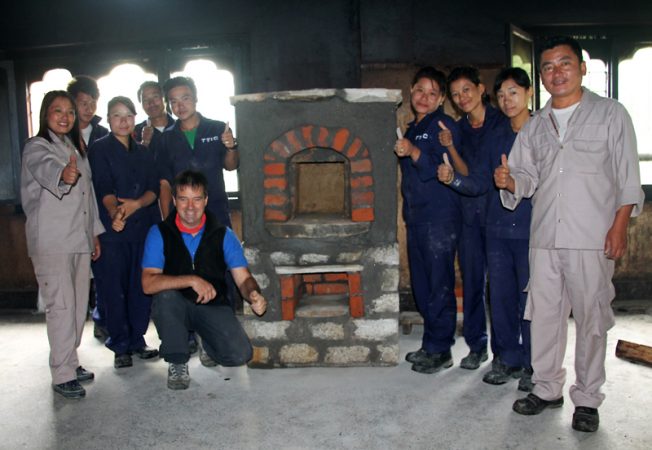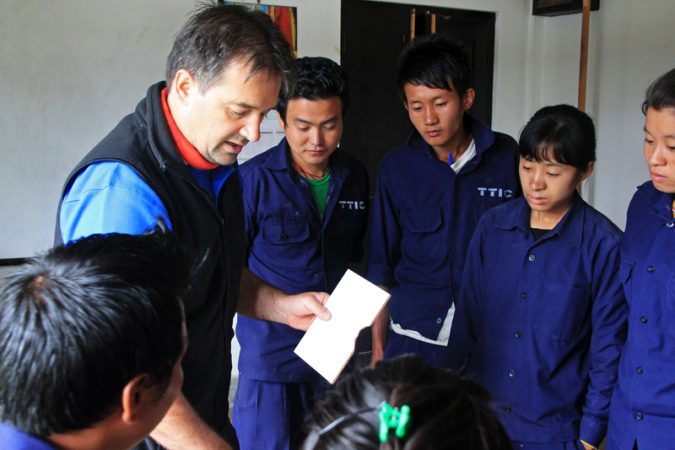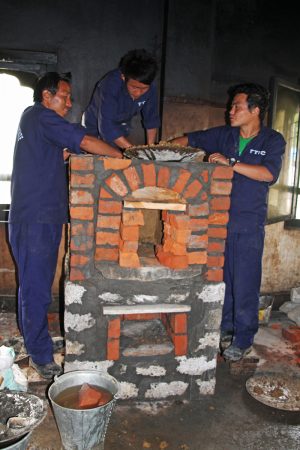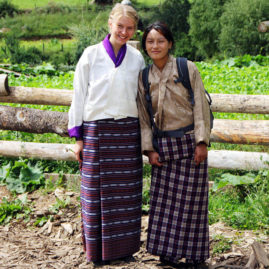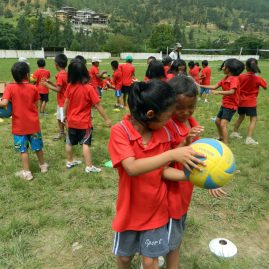This post is also available in: Deutsch (German)
Background and Objectives
To date the Bhutanese education system and its policies have focused predominantly on the attainment of so-called ‘white-collar’ skills. Vocational education has in contrast been relatively neglected, especially the ‘newer’ professions associated with the modern building sector, such as plumbing, tile-setting, wiring and electrical expertise. Traditional crafts (textile – and bamboo weaving, paper making, wood turning, etc.), meanwhile, continue to be considered important and are actively promoted.
Current Issues
The consequences in Bhutan of this approach are several and becoming increasingly apparent:
- The absence of a formal, respected and long-term vocational training system, hence a shortage of highly-skilled vocational professionals
- A lack of well-qualified trainers/teachers in vocational professional training, who possess the necessary experience in theory and practice
- The currently “school-like” character of existing vocational training, which tends to privilege theory over practice
- A generalized lack of appreciation for vocational jobs. There is some social stigma attached to vocational professionals, Bhutanese youths often preferring to be unemployed rather than train towards a career within a vocational profession. Taken together with the ongoing rural exodus in search of ‘white collar’ jobs in Thimphu (and beyond), there exists in Bhutan a very high youth unemployment rate despite increasing demand for qualified vocational skills
- The slow development within Bhutan of viable models for small- and medium-scale private enterprise
- At government policy level, no sustained or comprehensive efforts to promote vocational training and careers within schools
Complementary ‘Know How’ in Europe (Austria, Switzerland and Germany)
The dual vocational training system operating mainly within German-speaking regions of Europe is well known, internationally regarded and has a long history. And although in recent years there has also been a shift among young people away from interest in such professions, it becoming more difficult to find suitable apprentices, qualified ‘blue collar’ workers and crafts people in Austria and Switzerland are still considered important and valued for their expertise. These vocational professionals are institutionally represented through Guilds, unions and various small associations, and the private sector small- and medium-scale enterprises that many of them work within are supported by state policies and structures.
Objectives and Strategies
The objectives of our Go Vocational program are to strengthen and enhance vocational training and professions in Bhutan, with the aim of creating new career opportunities there. This will be achieved through the following activities of the Bhutan network:
- Forging and supporting partnerships between Austrian and Bhutanese vocational training institutions
- Applying the service of retired, highly-qualified vocational professionals from Austria
- Offering practical training (study tours) for Bhutanese in Austria
- Promoting Joint Venture Partnerships between small- and medium-sized enterprises in Austria and Bhutan
Through these endeavours our intention is to help reduce youth unemployment, to decrease poverty and the associated rural-to-urban migration, and also to stimulate the private sector by enabling establishment of the smaller-scale enterprise models that vocational professions usually require to succeed.



